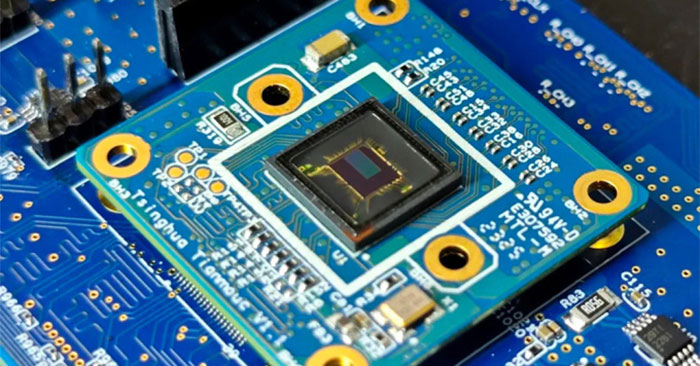China develops the world's fastest vision chip, 10,000 frames per second
The scientific team said that the Tianmouc chip was developed based on inspiration from the world's first human visual system, giving machines the same visual perception ability as humans. It analyzes visual information in two ways: for perception and for quick response.

The Tianmouc chip, introduced as the world's fastest vision chip, is capable of collecting image information at a speed of up to 10,000 frames per second, with 10-bit accuracy, a dynamic range of 130 decibels, Record image processing speed. Tianmouc also reduces bandwidth by 90% and has low power consumption.
Traditional imaging chips have limitations in power consumption and bandwidth that cause frequent errors or delays in these extreme situations.
Professor Shi Luping, project team leader, said that Tianmouc is a cognitive chip, not a computational chip developed based on their original technical roadmap.
The research team affirms that the Tianmouc vision chip will help the fields of autonomous driving and defense make progress, and can lead to the development of many new applications.